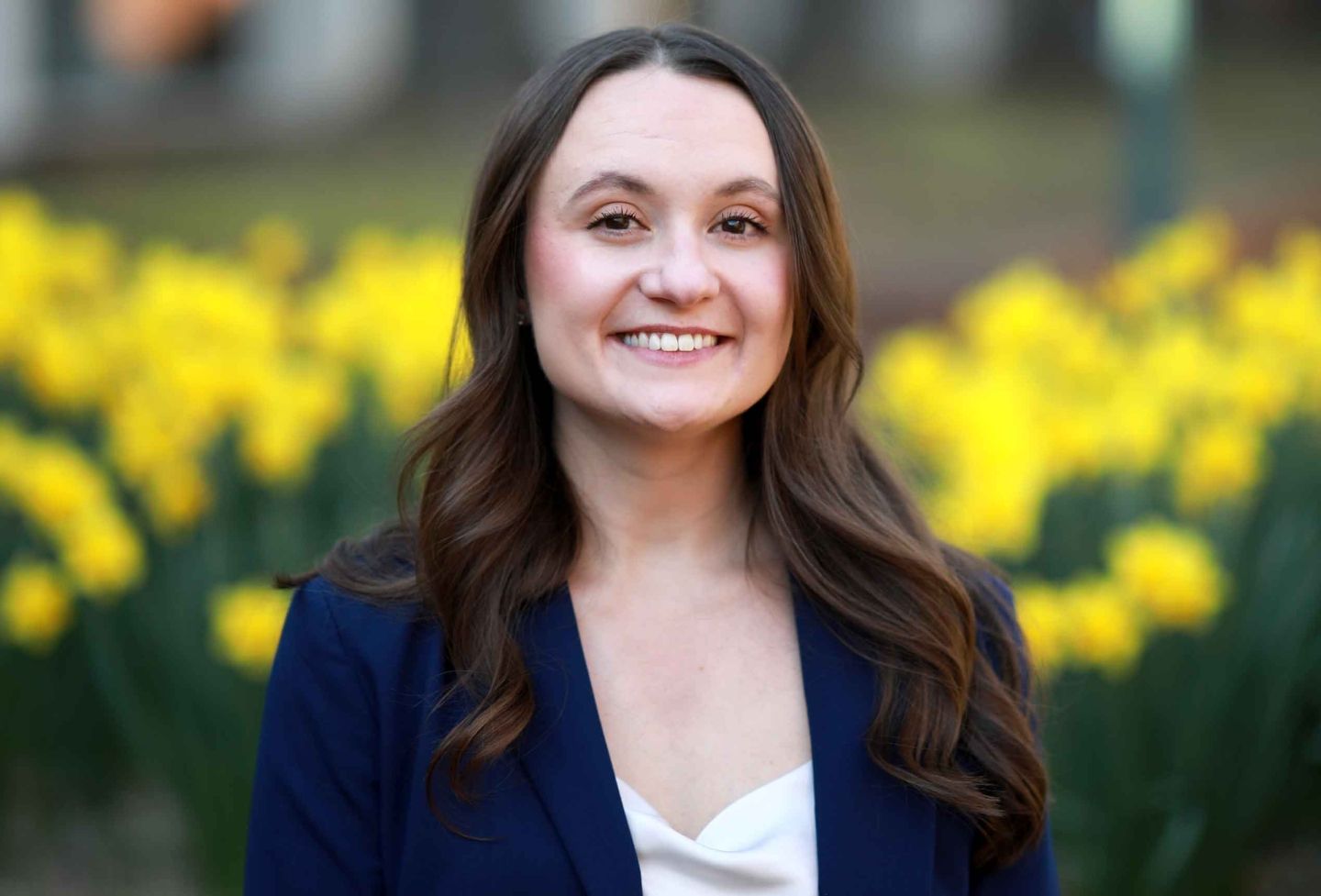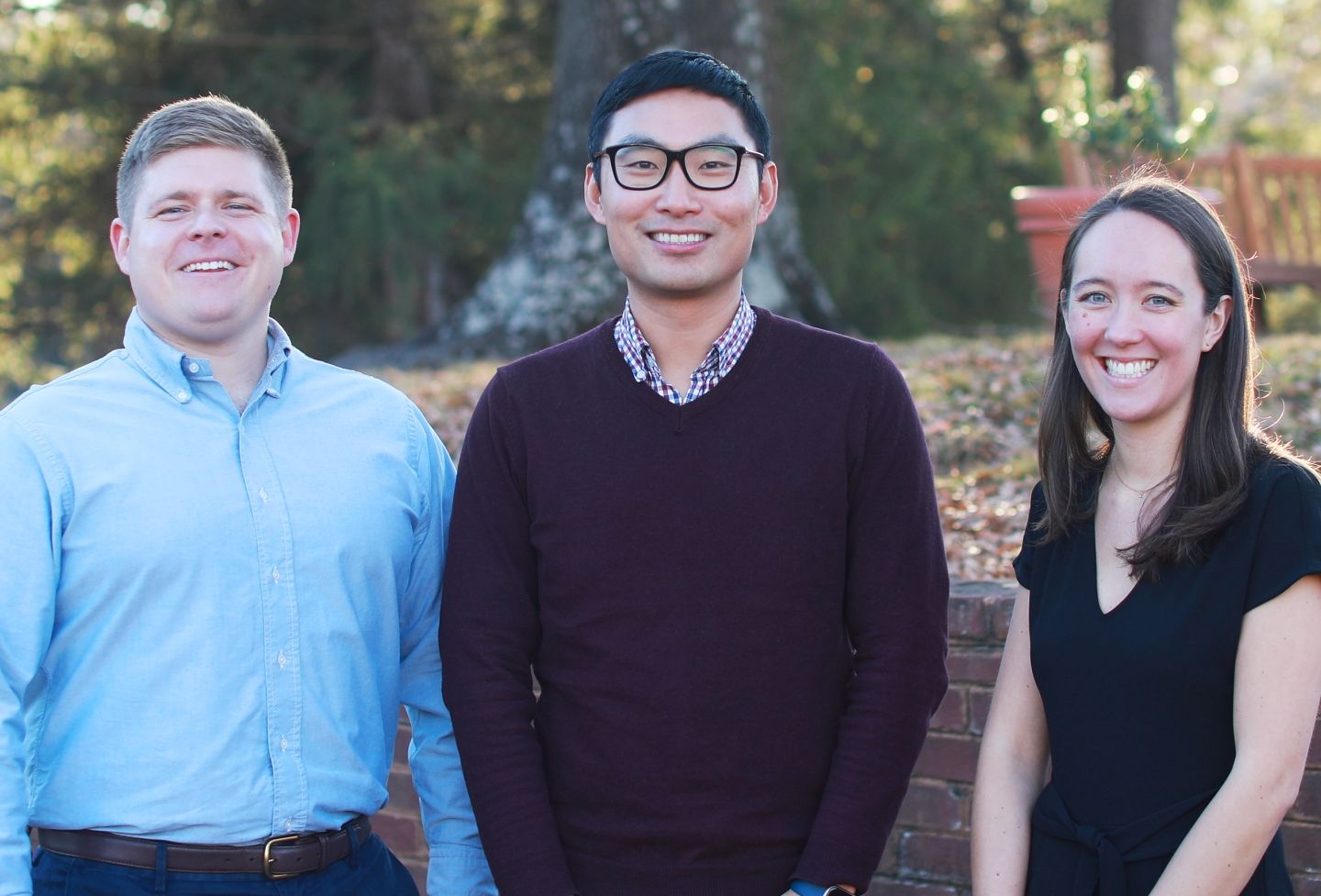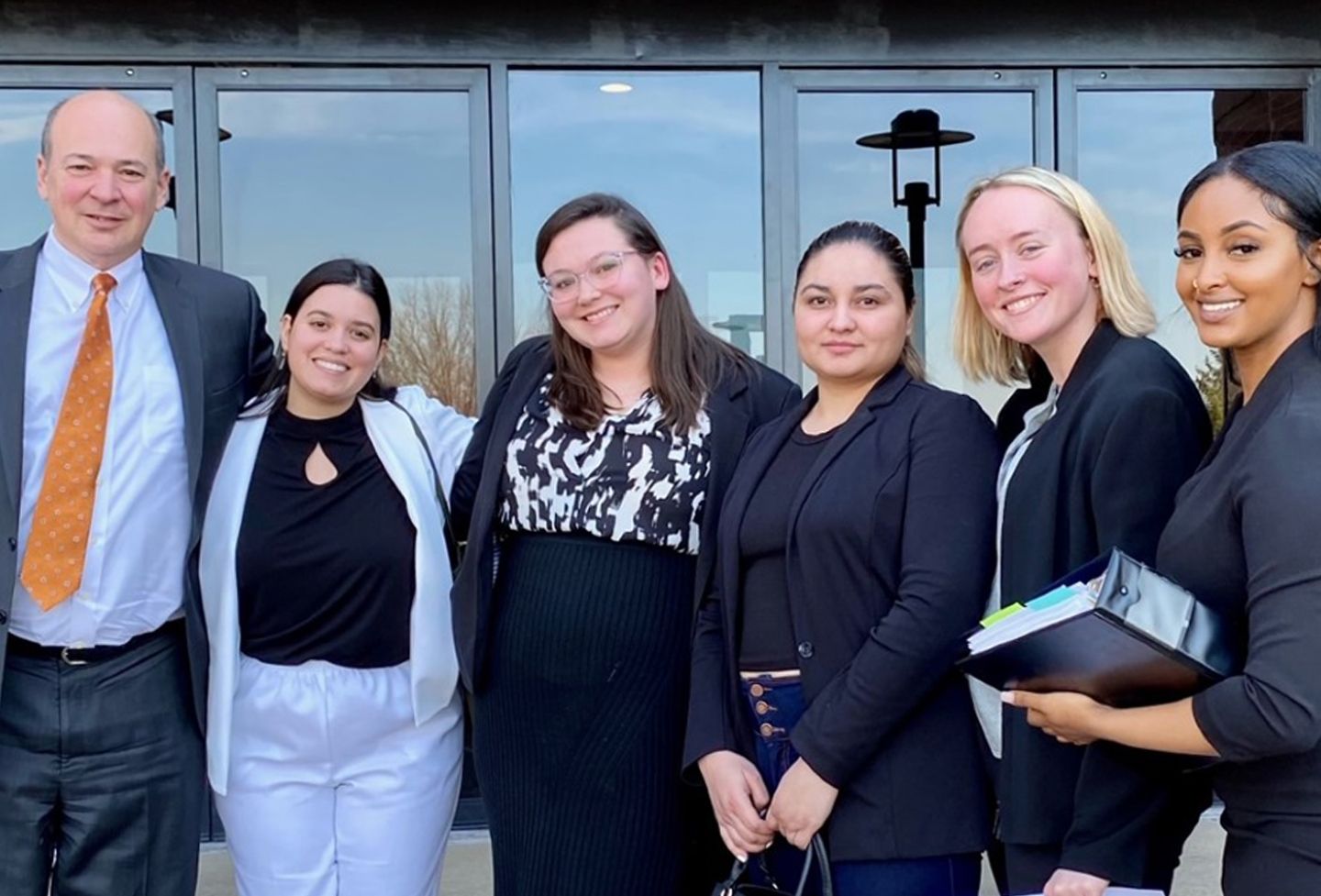A filmmaker seeking asylum from political persecution, a young mother applying for a visa following threats by her boyfriend, and a man hoping to retain his residency after being abandoned by his U.S. citizen wife are three of the people helped by University of Virginia School of Law Immigration Law Clinic students over the past year.
"At some level, all of these clients faced abuse," said Doug Ford, the clinic's director.
In partnership with the Charlottesville-based Legal Aid Justice Center, the semester-long clinic allows students to work with multiple clients to gain hands-on experience in immigration matters. The clinic is known in Central Virginia for taking on complex cases, and strives to give each student at least one client whose case is legally intricate — meaning it requires extensive client contact and legal briefing.
The more complex cases can be emotionally complicated, too.
"While crafting the legal argument is demanding in such cases, often the real challenge for the students is navigating the client's trauma so that they trust the student enough to revisit the pain," Ford said.
Ange: Persecuted for Speaking Out
Third-year law student Christine Gilleland and second-year law student Sarah Allen helped win asylum in August for a Rwandan woman, Ange, who relocated to Charlottesville out of fear of retaliation for her political beliefs. (First names only are being used to protect the privacy of the clients.)
While in high school in Rwanda, Ange had been kidnapped and tortured in retaliation against her student activism by people she believed to be affiliated with the government. She later made a movie advocating tolerance in her ethnically divided home country, and after the movie was accepted by Belgium's Afrika Film Festival, she began receiving harassing phone calls. She was told she was always being watched and would never be left alone.
"As soon as she went to the embassy to get the visa paperwork for the film festival, the threats started coming in," Gilleland said.
Fearing for her safety, Ange left the country to study at a university in Uganda, but continued to get threatening calls, so she applied to be a camp counselor in Texas through an international summer-job matching service.
Instead of returning home at the end of the summer, the woman took refuge with family friends who live in Charlottesville.
"She left everything behind at that camp except the clothes on her back," Allen said.
In working on the case, Gilleland said she spent a lot of time trying to figure out if her client was already on the government's radar for being in the country illegally, which would require a different type of application â one less likely to succeed.
"These job services have very strict rules," Gilleland said. "Whenever someone disappears on their watch, they get into very, very big trouble. So the question was, had they reported it? We didn't know."
Fortunately for their client, although the disappearance had been reported, authorities didn't know in which state to look, so the paperwork process stalled.
Gilleland, a 2013 clinic participant, handed off the case to Allen when the clinic concluded in the spring. Allen worked at the Legal Aid Justice Center over the summer and continued to acquire documents in support of their client's asylum request.
"Credibility is the biggest issue with asylum claims, so documenting everything you're arguing is important," Allen said.
But the documentation became difficult when witnesses grew squeamish.
"Family, friends and people she went to school with were physically afraid to put their signatures on documents," Allen said. "They were worried about it being traced in the mail."
The students, however, found a solution: They had the witnesses scan their signatures and mail the affidavits electronically rather than by post.
The final step was preparing for the asylum interview.
"Ange made me practice with her 12 different ways for the interview," Allen said. "She was like, 'Now be a nice asylum officer! Now be a mean one! I want to be ready.'"
Ange's asylum was granted during her interview without further process, and the client is now in film school in New York. This August, she will be eligible to apply for legal U.S. residency.
Rosario: Seeking Haven From Abuse
After Allen joined the clinic officially in the fall, she helped win a second case on behalf of a Mexican immigrant, Rosario, a teenage single mother who was an outstanding high school student — despite being abused by her Charlottesville boyfriend and father of her daughter.
Rosario was pursuing a U visa, which can be issued after a crime occurs against an immigrant as incentive to encourage the immigrant's participation in the criminal justice process. But building evidence for the case wasn't an easy process, because Rosario had already left her boyfriend.
"It's a lot more difficult to prove, because you don't have the police report documenting the male's physical violence," Allen said. "So it was all basically relying on what she was saying."
To establish proof, the clinic had Rosario go to the Charlottesville Police Department to have the text messages on her phone documented.
"Her boyfriend had sent her very horrible and threatening text messages saying he was going to kill her, he was going get her deported, he was going to get their daughter," Allen said.
That evidence, plus affidavits from witnesses who knew of the abuse, convinced a local family court judge to grant the U visa, Allen said. The visa applies not only to her client, but to her client's sisters as well.
Rosario is now pursuing a nursing degree and hopes to remain in the United States with her daughter. After three years, U visa holders can apply to become legal permanent residents and obtain green cards.
"I was very happy," Rosario said regarding the clinic's help, which has been ongoing since 2010. "Sarah really sat down with me and really kept me up to date with my case. Even now, she continues to keep in touch."
Ernest: A Path to Residency After Divorce
Also in the fall, clinic member and third-year law student Emily Schirmer helped a victim of marital abuse, Ernest, by helping win permanent residency for him. A native of the Republic of Ghana, Ernest came to the United States after marrying a Charlottesville woman, but later found himself put out of the house."Late one night, Ernest came home from working the late shift and the locks had been changed," Schirmer said.
Ernest became effectively homeless. He lived in his car for a while, then on friends' couches, while he worked two jobs to stay afloat financially.
Ernest wanted to divorce his wife, but he also wanted to stay in the U.S., Schirmer said. Upon getting married, he and his wife had properly obtained "conditional" permanent residency for him, which the government requires as a first step due to concerns about marriage fraud. The conditions are typically lifted once the immigrant is married for two years, allowing a path to full, permanent residency and a green card. But Ernest hadn't been married a full two years when the split occurred.
He at first attempted to file a battered spouse petition on his own, which would potentially waive the two-year requirement. In the fall, however, when he was officially taken on as a client of the clinic, his counsel decided to change course.Â
"In the end we decided a battered spouse petition wasn't the best path because there is a really high standard to reach battered," Schirmer said. "And even though he lived in his car, there wasn't physical violence, and we would need to get a report from a psychologist."
But Schirmer and the clinic discovered another way.
"If you have a finalized divorce decree, you can also remove the conditions, if you can prove the reason the marriage dissolved was not because of you," she said.
Schirmer documented her client's alienated living situation, but the client had a very short time to file. Ernest's wife was eager to get divorced, too. They had set a date to go before a judge, even though Ernest did not have a divorce lawyer. The court appearance was four days before the government's request for evidence was due, with the client's best chance hinging on whether the couple obtained the decree.
"So we wrote two briefs," Schirmer said. "One as if we did get the divorce decree, and one as if we didn't."
The clinic has a network of local pro bono attorneys and service providers with whom it collaborates, and it was able to find a divorce attorney who would represent Ernest, but he would have to make the tough decision to let go of any claim to property acquired during the two years he was married.
"The only way the judge would be willing to grant the divorce decree is if there weren't any outstanding disputes," Schirmer said. "Ernest was in a tough position, but at the end of the day he had to make the decision that he wanted to be here more than he wanted anything he accumulated up to that point."
Ernest received the good news that his residency petition was accepted at the end of the year. He called Schirmer up on New Year's Eve, crying, to thank her.
Schirmer said the value of the clinic experience, for her, was seeing hopefulness in a field that can sometimes have its cynical side.
"Ernest said, 'Of course I want to be a permanent resident here; it's America,'" Schirmer said. "'I can go to college here, I can become anything I want here.'
"The Immigration Clinic gives you that glimpse of optimism."
Founded in 1819, the University of Virginia School of Law is the second-oldest continuously operating law school in the nation. Consistently ranked among the top law schools, Virginia is a world-renowned training ground for distinguished lawyers and public servants, instilling in them a commitment to leadership, integrity and community service.


